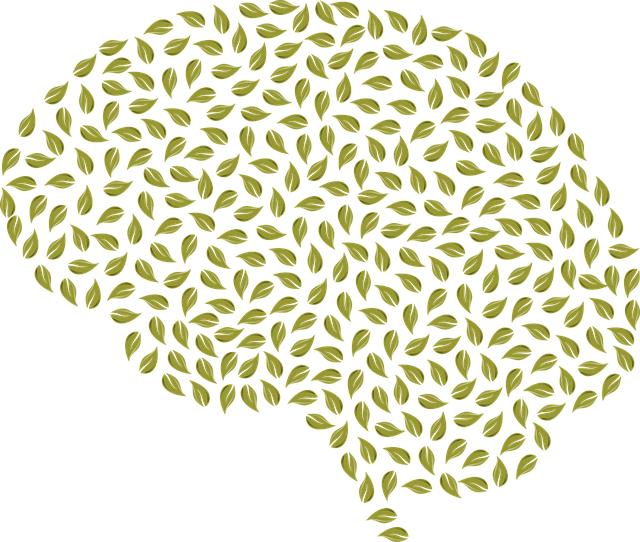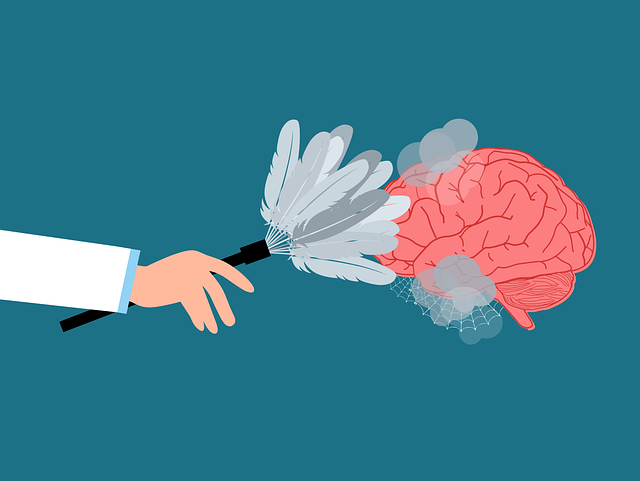Northglenn Anxiety Therapy offers a holistic approach to resilience building, focusing on RFM (Resilience, Flexibility, Mastery) exercises to empower individuals in managing anxiety, depression, and burnout. By combining personalized strategies, mindfulness meditation, and stigma reduction efforts, they create a supportive environment for lasting recovery. Their method includes identifying triggers through self-awareness, incorporating daily practices like journaling and breathing exercises, and measuring progress through diverse assessment tools. The long-term benefits include improved emotional well-being, conflict resolution skills, and mental health.
“Discover how Northglenn Anxiety Therapy leverages RFM (Resilience, Flexibility, and Mastery) as a powerful tool in managing anxiety. This comprehensive guide explores the integration of Resilience Building Exercises within therapy, offering practical strategies for identifying personal triggers and developing effective coping mechanisms. From daily exercises to measuring progress, learn how these techniques foster long-term mental resilience. Embrace the Northglenn approach to transform your relationship with anxiety and enhance your overall well-being.”
- Understanding RFM and Its Role in Anxiety Therapy
- The Northglenn Approach: Integrating Resilience Building Exercises
- Identifying Personal Triggers and Coping Strategies
- Practical Application: Exercises for Daily Resilience
- Measuring Progress and Long-Term Benefits
Understanding RFM and Its Role in Anxiety Therapy

At Northglenn Anxiety Therapy, we recognize that resilience is a cornerstone in managing and overcoming anxiety disorders. RFM (Resilience, Flexibility, and Mastery) exercises are at the forefront of our approach, designed to empower individuals to navigate life’s challenges with greater ease. This therapeutic technique aims to help clients develop coping strategies that enhance their ability to handle stressful situations, fostering mental toughness and a sense of control.
By incorporating RFM into our practice, we address not only the symptoms of anxiety but also the underlying factors contributing to its persistence. Resilience-building exercises focus on cultivating flexibility in thinking and behavior, enabling individuals to adapt to changing circumstances. This proactive approach not only alleviates symptoms but also plays a pivotal role in preventing relapses, making it an integral part of our comprehensive mental health services. Additionally, by reducing the Mental Illness Stigma Reduction Efforts, boosting confidence, and advocating for better Mental Health Policy Analysis, we create an environment where clients can embrace their journey towards recovery with newfound strength and perseverance.
The Northglenn Approach: Integrating Resilience Building Exercises

The Northglenn Approach to resilience building prioritizes holistic well-being by integrating exercises tailored to individual needs. This methodology recognizes that anxiety, depression, and burnout are prevalent issues, especially among healthcare providers. By incorporating techniques like mindfulness meditation into their practice, Northglenn Anxiety Therapy offers a comprehensive solution. These exercises not only help in managing stress but also foster emotional resilience, enabling individuals to navigate challenging situations with greater ease.
The Northglenn Approach encourages a proactive stance towards mental health, viewing burnout prevention strategies as essential components of professional development. Through regular practice, participants gain valuable tools for depression prevention and learn to cultivate a sense of inner calm amidst the hustle and bustle of daily life. This personalized approach ensures that each individual emerges with enhanced coping mechanisms, ready to face the challenges ahead with resilience and clarity.
Identifying Personal Triggers and Coping Strategies

Identifying personal triggers is a crucial step in building resilience and managing conditions like anxiety or depression. Northglenn Anxiety Therapy emphasizes the importance of self-awareness when it comes to recognizing patterns that set off distressing emotions. This process involves reflecting on life events, interactions, or internal thoughts that consistently lead to feelings of overwhelm or unease. By identifying these triggers, individuals can start to develop personalized coping strategies.
Coping strategies are essential tools for emotional well-being promotion techniques. They empower people to navigate challenging situations and maintain a sense of control. From deep breathing exercises and mindfulness practices to engaging in physical activity or creative pursuits, there are numerous ways to boost confidence and prevent depression. Northglenn Anxiety Therapy encourages clients to explore and implement these strategies, tailoring them to their unique needs.
Practical Application: Exercises for Daily Resilience

Incorporating resilience-building exercises into daily routines is a powerful strategy to combat anxiety and enhance overall well-being, especially in today’s fast-paced world. Northglenn Anxiety Therapy offers practical tools for individuals seeking effective stress management techniques. These exercises are designed to empower people to navigate life’s challenges with greater ease. One simple yet effective method is mindful breathing; taking a few minutes each day to focus on slow, deep breaths can significantly reduce anxiety levels and promote a sense of calm.
Another valuable practice is journaling, which allows individuals to process their thoughts and emotions. By jotting down experiences and feelings, one can identify patterns and triggers for anxiety, enabling better understanding and management. These exercises are essential components of the Risk Management Planning for Mental Health Professionals toolkit, as they contribute to Mental Illness Stigma Reduction Efforts by fostering self-awareness and encouraging proactive mental health care.
Measuring Progress and Long-Term Benefits

Measuring progress is a vital aspect of any therapy journey, and resilience-building exercises are no exception. At Northglenn Anxiety Therapy, we utilize a range of methods to track our clients’ development. This includes self-assessment questionnaires, where individuals reflect on their symptoms, emotional well-being, and coping strategies over time. Additionally, regular sessions with therapists allow for open dialogue about challenges and successes, providing a more nuanced understanding of progress. By combining these qualitative and quantitative approaches, we can tailor the therapy plan to each client’s unique needs.
The long-term benefits of resilience training are profound, fostering individuals’ ability to navigate life’s stressors with enhanced emotional agility. This skill set translates into improved mental health, better conflict resolution using techniques like those taught in healthcare provider cultural competency training and enhanced overall well-being. Cultural sensitivity in mental healthcare practice is also integrated into our approach, ensuring that every client receives support that respects their unique background and experiences.
Northglenn Anxiety Therapy offers a holistic approach to managing anxiety by combining RFM (Resilience, Flexibility, and Mastery) principles with tailored resilience-building exercises. This comprehensive strategy equips individuals with effective coping mechanisms to navigate life’s challenges. By identifying personal triggers and adopting practical daily exercises, one can enhance their overall resilience, leading to improved mental well-being and a reduced impact of anxiety in daily life. This integrated method, as demonstrated by Northglenn Anxiety Therapy, provides a powerful tool for long-term mental health management.














